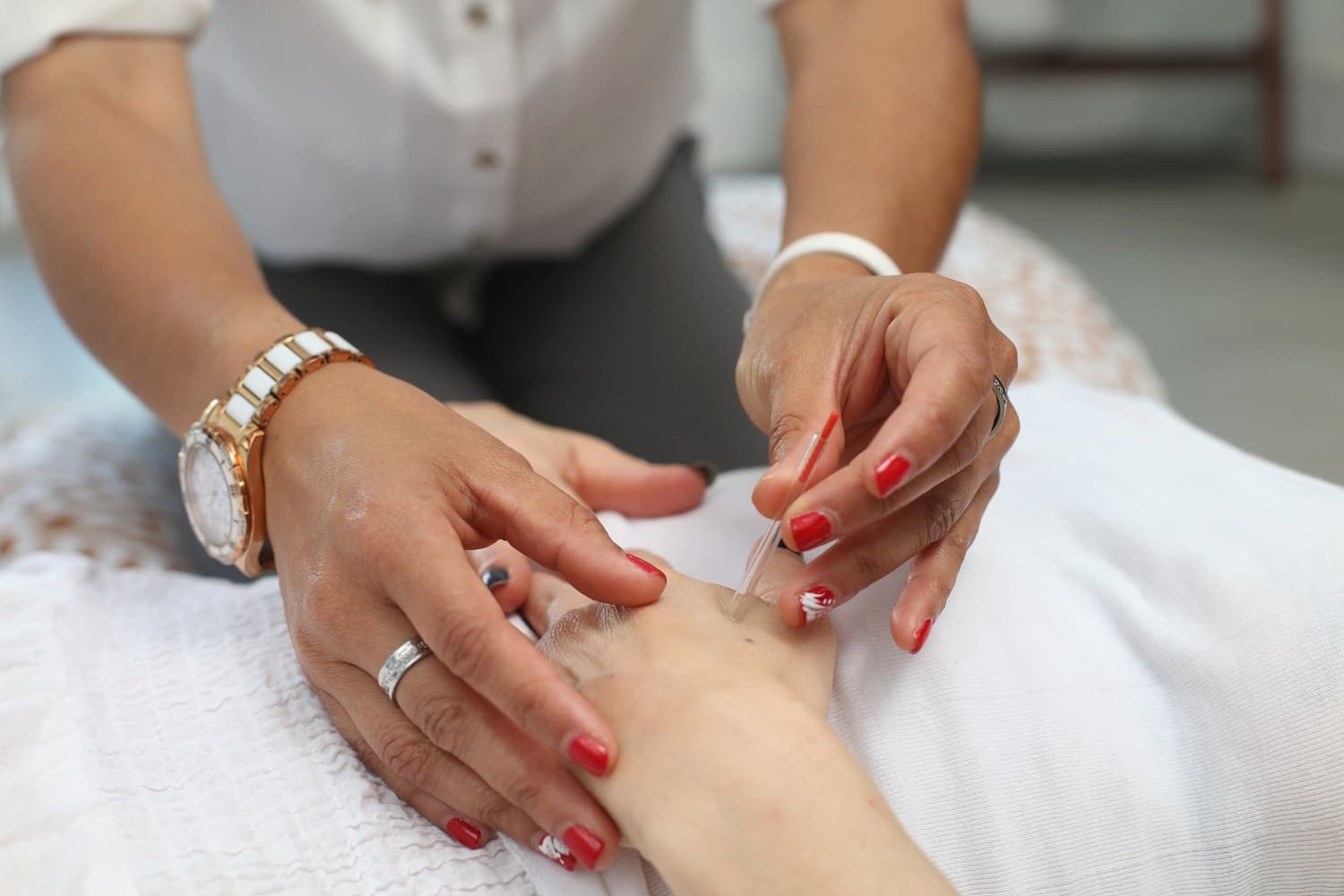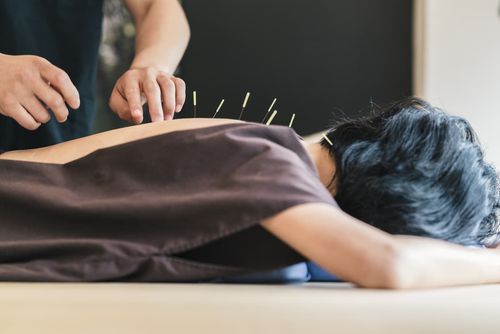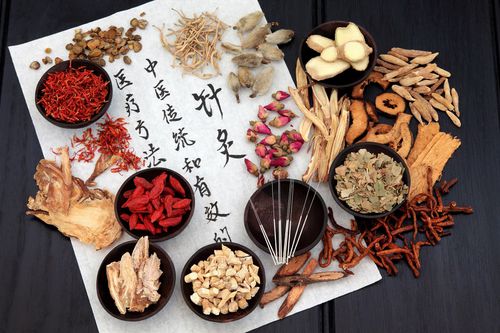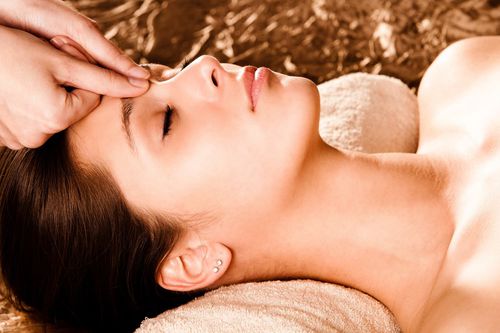What is Acupuncture?
A key component of Traditional Chinese Medicine (TCM), acupuncture is an alternative complementary therapy that focuses on the improvement of a person's overall wellbeing by stimulating specific points, called acupoints, in the body using thin needles to relieve pain and treat various health conditions.

How Does Acupuncture Work?
In TCM, it is believed that the natural flow of energy (Qi) in the body is essential to a person's health and wellbeing. The Qi is said to flow through energy pathways, or meridians, in the body to nourish the different organ systems. A disruption in this flow can lead to disease.
Acupuncture helps to stimulate the flow of energy by accessing the meridians through several acupuncture points in the body. The goal of acupuncture is to remove energy blockages and balance energy levels, which in turn helps in regulating physical, mental, and emotional health.
Inserting thin needles into the acupoints can bring the flow of Qi into proper balance. The stimulation of the acupoints helps increase blood flow while at the same time triggering the body's natural painkillers.
Does Acupuncture Hurt?
Acupuncture does not usually cause pain or discomfort. It is a common misconception that acupuncture hurts, and a reason why some people are hesitant to try it. The treatment is not meant to hurt, but during the treatment, the patient may experience some sensations.
These sensations vary between people, depending on their overall sensitivity and level of pain tolerance. Sometimes, the first acupuncture session will be more painful than the succeeding treatments because certain acupoints are being activated for the first time.
What Are the Benefits of Acupuncture?
Research has shown that acupuncture may have a role in relieving tension headaches and migraines. It can also help alleviate pain and other symptoms that are associated with the following conditions:
- Lower back pain
- Neck pain
- Osteoarthritis
- Knee pain
- High and low blood pressure
- Chemotherapy-induced vomiting and nausea
- Some gastric conditions, such as peptic ulcer
- Urinary tract infections
- Painful menstrual periods
- Dysentery
- Allergic rhinitis
- Facial pain
- Morning sickness
- Rheumatoid arthritis
- Sprains
- Chronic pain
- Tennis elbow
- Sciatica
- Dental pain
- Stroke
- Labour pain
What Can You Expect From Acupuncture?
During the initial treatment session, the acupuncturist will ask the patient about their medical history to identify the root cause of their health problem. Following the principles of diagnosis in TCM, the acupuncturist may examine the patient's tongue and take their pulse on either wrist. Then, they will ask the patient to lie down on a treatment table and start inserting sterile, disposable needles into specific acupoints.
Acupuncture needles are painless, but a slight tingling sensation may be felt as they're being inserted into the skin. The needles will be left to stay in for about 20 minutes to stimulate the meridians. An acupuncture session may last for 30 minutes, and the patient is advised to receive at least two treatments a week for several months until their body has regained homeostasis.
Acupuncture is highly recommended as an adjunct to other natural therapies or conventional medicine.




